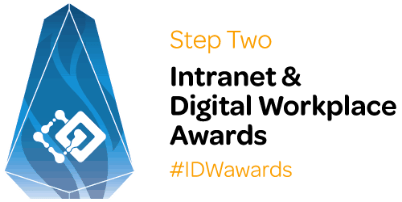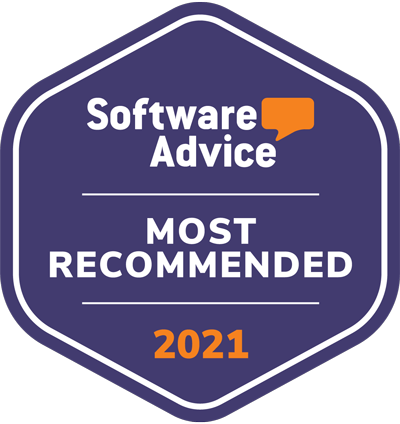Season 2
Ep 12: Beyond the Words: The Case for Listening to What Isn’t Said
With Ximena Vengoechea & Doug Showalter
Or listen on:Description
We’ve spent the whole second season of Infernal Communication talking about storytelling. So it’s time we focus on the other side of the conversation: listening. You know the old saying, we’ve got one mouth and two ears, yet for some reason, listening can really take a back seat to talking, let’s flip the script.
In this episode, former 9-1-1 operator, Doug Showalter, shares real world examples of how careful listening saves lives. And then, How to Listen Like You Mean It, author Ximena Vengoechea gives practical advice for deciphering the right kind of listening– depending on who you’re talking to.
Join host Lottie Bazley in our series finale for insight into how to become a better listener– whether it’s a life-threatening situation or your average Monday meeting.
Transcript
Doug Showalter: “Okay, the window's down. I need you to go out that window and when you get out, look around and go back the way you came. You got this, you got this. I got faith in you and you can do this.”
Lottie Bazley: You are listening to Infernal Communication brought to you by Staffbase, and I'm your host, Lottie Bazley.
We have spent our whole season talking about stories, how to tell them, how to find new heroes for them and how to really take control of them. But today on the season finale, we are going to flip the script and talk about listening. There are many blockers that stop us from listening. Something I'm guilty of is rehearsing, thinking about what I'm going to say in response to someone instead of actually continuing to listen. Or when I suddenly remember I need to buy bin bags as my friend is telling me about their messy breakup. You know how the old saying goes, we've got one mouth and two ears so that we can listen twice as much as we speak.
So let's take a second to sit back and listen to two guests. We are going to hear from the author of How to Listen Like You Mean It, Ximena Vengoechea. She's going to fill us in on active listening and how to steer a conversation where you need it to go. But first, imagine a job where listening can be a matter of life or death.
Doug Showalter: Especially when you're doing radio dispatching and when you're talking to the officers in the field, they may only have one time to tell you something.
Lottie Bazley: This is Doug Showalter. He was a 911 dispatcher with the California Highway Patrol for 30 years.
Doug Showalter: I dispatched during riots and celebrities and all kinds of stuff that taught me a lot of lessons. And then for about the last 17 years or so, I've trained dispatchers around the country how to answer calls, how to handle unusual situations. We have a lot of those.
Lottie Bazley: Doug seems pretty comfortable in unusual situations, maybe because he grew up with a dad who was a private investigator, which at the time was the coolest of all cool guy jobs in the world.
Doug Showalter: Because that's when Magnum PI was out and Rockford Files and all that stuff. And when I graduated high school, he said, “Hey, look, come work with me.” So I did and I did about 10 years of that and I had so many crazy experiences with that job. That was back in the old days when you could actually do a lot of clandestine-type stuff. So I learned a lot of lessons with that, learned how to talk to people, things like that. And then I had an in-law that was a LAPD officer. And so he said, “Hey, we're hiring dispatchers right now. You could probably do this job.” And the private investigating job, your pay was all over the place. I said, “I'd like to have something that's steady.” So I got hired with the Highway Patrol and I got to use a lot of my experiences from private investigating into 911. It just kind of flowed in because I had to get information from people that didn't necessarily want to tell me.
Lottie Bazley: Just to be clear, it doesn't mean he was interrogating callers. Doug means people were calling under immensely trying, often dangerous circumstances.
Doug Showalter: That caller is in a different frame of mind than anybody else because they don't know how to handle stress like we do. We get training on how to handle that kind of stuff and how to get information from people by just listening carefully and listening to what they actually say or sometimes what they don't say. Sometimes you'll ask them questions, “What kind of car are you following right now?” “I don't know. I have no idea.” “Well, you do.” It's just to me, they just don't know how to tell me. So I'll ask him, “Is it a truck or a car?” “Oh, it's a car.” “Oh, okay. Is it a big car or a small car? Like a little tiny car?” “No, it's a pretty big car.” They just needed me to ask them the right kinds of questions to get them to tell me that.
Lottie Bazley: You can hear Doug's tone change when he talks about asking these questions, he slips into a slower, more gentle mode, like it's become automatic to him after years of experience.
Doug Showalter: They call 911, they are upset, they're scared, they're nervous. When you're asking them questions, they don't even know what's going on. So I learned that if I use their name right away, I'll find out their name right away and I'll start using it saying, “Bill, you sound like you're really upset and I understand that. Tell me what's going on.” And they don't look at me as the police, they look at me as, “It's just Doug,” “What's going on, Bill? Tell me what happened.” And I got so much more information from people by just using those key phrases and listening carefully when they said something like if they said, “Oh my God, I'm so hurt.” “How are you hurt? Tell me, what happened? What hurts?” And you can get that information from them because sometimes people just skip over it.
Lottie Bazley: Doug's talking about burying the headline. And here's a great example of someone doing just that. Doug was working a busy shift at the 911 dispatch in Los Angeles. The calls were coming in nonstop, including one that didn't initially sound like an emergency, but Doug could hear something was up.
Doug Showalter: So I get a call of a lady who I could tell she was very elderly, “ 911 emergency, what are you reporting?” “ Oh, I don't know.” And so I said, “What's going on?” “I think I made a terrible mistake.” “Well just tell me what happened.” So I said, “What's your name?” So she says her name and I'm using it at that point constantly, “Tell me what happened, what's going on? You sound like really upset. Did something happen?” And I can hear her car making a weird kind of noise. There was something going on and I said, “Where are you?” “I made a turn and I'm going to get in so much trouble because my car is in the water.” “In the water? Where are you?” Because at that time we didn't have caller ID. We didn't have a mapping software.
You had to know. And thank God I was a private investigator, so I knew the LA Basin, I knew the whole place. So I was asking her, “Where did you come from today? Did you leave your house? Where'd you go?” “I left here and I went to work.” “Okay, where's your work at? Okay, you left work and then where'd you go?” “I was going to go over to the mall.” She tells me the name of the mall and I'm like, “I know where she's at.”
Lottie Bazley: Doug immediately dispatches the fire department, the paramedics and the police. They're on their way, but they are not there yet. That takes time. Something Doug knows is in short supply. So our caller is worried about getting into trouble when the real issue at hand here is that she's driven her car into a body of water and the car is starting to fill up.
Doug Showalter: So I said, “Listen, you've got to get out of that car because it's going to fill up, the water's going to come in, it's going to get really cold. You got to get out of the car.” “I can't get out because if I get out, I don't know how to swim that well. And I…” “Okay, if you don't get out of the car, you have about a zero chance of survivability because all that craziness that they talk about on TV about just let the car equalize the pressure and hit the bottom.” And you want to tell somebody in a panic situation, “Hey, ride that car to the bottom. Good luck.”
So I said, “Can you roll the window down?” And it was an older car so I can hear her cranking this window down and you can hear water coming in. “I know you're scared and I know water's coming in. Can you try the door?” So she tries the door, can't get out. “Okay, the window's down. I need you to go out that window and when you get out, look around and go back the way you came in the water.” “Wait, I don't think I can do that.” “You got this. You got this. I got faith in you and you can do this.” “I don't know.” “You can do it. Come on.” Eventually I hear her going, “Oh my god, oh my God.” And she drops the phone.
Lottie Bazley: Did she make out the car? Did help arrive in time? Doug doesn't even have the luxury of thinking about this because...
Doug Showalter: As soon as you hang up, you get another call. There is no wait, no, “Let me think about the call” like they do on TV. It don't work like that. As soon as you hang up, you can't go like, “Oh my God.” You have just immediately, “911 emergency. What are you reporting?”
Lottie Bazley: He never found out what happened. Just kidding.
Doug Showalter: So I'm on the next call and I'm on the next call and I finally get to go to break and I'm in the break room and I'm going, “Geez, I wonder what the hell happened.” So I called that fire department and I said, “Can you tell me what happened?” And I'm scared because I'm thinking, “God, what if she didn't make it?” I don't know how I would handle that because at that point in my career, I had had no major instance. So they said, “Oh, we got there. She was still crawling out of the car, but we were able to get her the rest of the way out and got her out. Good job.” And I'm like, “Oh, thank God.”
Lottie Bazley: This caller wasn't being particularly forthright about the reality of the situation. But that didn't change the fact that Doug had a very limited amount of time to figure out what was going on, where she was, and then to coax her to crawl out of a partially submerged car. He did it and she survived. But it took a lot of careful listening. And for Doug, this means hearing not just the words people say, but the words they don't say and then add deciphering tone and listening for clues in the background. It's a lot.
Doug Showalter: Sometimes on the radio they'll say, “Everything's Code 4.” Which Code 4 means in our world, everything's stable, nothing's going on. But you can hear it in their voice that they're not. And they'll say, “I'm Code 4 for now.” No, we don't have that code. So you're either Code 4 or you're not. You're listening to what they're not telling you. It seems weird, it seems odd, but that's why you have to pay attention when you're on these calls. I saw people do it where they're just not paying attention and they're having to ask somebody, “I'm sorry, what'd you say?” You should have heard it the first time because what if they can't tell you again?
I heard one of our officers in LA one time many years ago, she was in a fight. I could hear her getting hit and she tells me, “Can you just go ahead and roll me another unit?” But I could hear in the background going on and I'm like, “Are you Code 4?” And she didn't answer it. I'm like, that's it, man, I sent everybody and their mama down there and it's like she was in a fight. I said, “Why didn't you just say it to me?” It's just infuriating. It's like, it's okay. You can ask for help. I've been in enough fights when I was a private investigator to know it hurts when you get hit.
Lottie Bazley: I'll admit this is pretty extreme stuff on a different level than what most of us are dealing with, especially in the office. It's been at least a week since my last punch up at work. But a lot of the same principles apply because no matter what the circumstances, people who don't feel listened to stop sharing information, communication breaks down. And that's not good in emergencies or in our relationships and in our workplaces. So let's bring in a different kind of listening expert.
Ximena Vengoechea: My name is Ximena Vengoechea. I'm a user researcher, an author, an illustrator, a speaker.
Lottie Bazley: Ximena wrote a book called Listen Like You Mean It: Reclaiming the Lost Art of True Connection. As far as I know, she's never skulked the mean streets of LA with a mustache and a trench coat, but she has done a lot of listening.
Ximena Vengoechea: My role as user researcher is really where I honed my listening skills. And for those who aren't familiar, it's kind of a little known role in the tech industry where essentially my job is to get to know people and understand their needs, their motivations, their perceptions and how we can build and design products that meet those needs. So it's a lot of interviewing at the end of the day and observation.
Lottie Bazley: Ximena's job was to get the information she needed from people in the span of an interview. It's definitely not the same job as Doug's, but the basics are similar. You have to find a connection quickly and listen intensely.
Ximena Vengoechea: Culturally, there's a lot of training around being a great presenter, being a great storyteller, negotiating influence, persuasion, all these ways that we can get our message across, but we forget about that other piece. And to me, that other piece is just so important.
Lottie Bazley: And that, of course, is listening. Ximena says that too often we try to fix miscommunications by focusing only on what we say and how we're saying it. We wrestle with the feeling that things would work out if we could only get our message across. But to really listen, we need to swing our focus outward. There's three important elements. Humility, curiosity and empathy.
Ximena Vengoechea: So really allowing yourself to go a little bit deeper to ask questions about why the person feels the way that they do or why they are suggesting the approach that they're suggesting. Even if there's that voice inside of you that says, “Well, I know better. Actually that's not what we should do. Or actually that's factually wrong.” It's about getting curious and saying, “Well, okay, why might they be recommending this approach or why might they believe this to be true?” Where did that come from? What can I learn about this person based on what they're sharing with me?
Lottie Bazley: So acting with humility, curiosity and empathy are key characteristics to helping us become better listeners. But it goes even deeper. You can be a good listener, but your listening style might not be what the other person needs. Ximena breaks this down into listening modes. For one, there's the problem solver.
Ximena Vengoechea: So if someone is talking about their workload and how much they have on their plate, a manager with a problem solving default listening mode might hear that as like, “Wow, I really need to take something off of this person's plate. They are swamped. I need to see what I can do to help them deprioritize things.” That might be what the person was trying to communicate, that might be exactly what they need, but also it might not be. The person might just have been saying like, “I'm doing so much” as a way to say like, “Hey, look at me. I am doing so much. I am doing more than my share and I am crushing it.”
Lottie Bazley: Another example of a listening mode is the mediator. You know, that person, the one who just wants everyone to get along.
Ximena Vengoechea: That can be fantastic, especially if there's a disagreement or you're trying to come to some consensus, especially if there's a lot of you, maybe a big group, a big meeting, super valuable. However, sometimes a mediator can come in and, quote, “mediate” where there is no conflict. They are kind of stepping in. They might hear things and think like, “Ooh, so-and-so looks like or sounds like they're getting upset. And so-and-so I think is going too far and I need to just smooth things over and propose some kind of compromise.” When actually what is needed in that moment is conflict, is an airing out of grievances that have been under the table and need to be communicated or a lot of our best ideas come because we disagree and then we get to something better. And so the default listening mode that you have, they're all great and they're all also kind of thorny and tricky if they are misapplied.
Lottie Bazley: So how do we know what listening mode is best for the situation? Sometimes it's just a matter of taking a backseat. And you know what they say, good things come to those who wait. So, take a break. Let the conversation breathe and see where that gets you.
Ximena Vengoechea: A tendency towards impatience is really an inhibitor. It prevents the other person from sharing something. Maybe it was on the tip of their tongue or maybe they're kind of working their way towards it. And you, me, I, all of us kind of jump in either because we get uncomfortable and we think, “Oh, well, there's nothing else to be said. This is kind of awkward.” Or because we have an idea that we want to share and we want to just jump in and kind of save the day with our idea. But really opening things up, allowing things to breathe is one of the most important things that you can do. And for those of us who are naturally impatient, of which I count myself, I will sometimes just count to 10 in my head and I usually don't even get to 10 because usually the other person will chime in before then. But that's just something that you can kind of give yourself the chance to open up that space.
Lottie Bazley: That's an old journalist trick. Just sit back quietly and wait for the interviewee to break the silence. Super awkward, super effective. But what about the place where listening goes to die? Meetings.
Ximena Vengoechea: One of the biggest challenges is how do you keep things moving along while also being inclusive and hearing everybody's voice?
Lottie Bazley: Because it's safe to say people in meetings fall into two categories.
Ximena Vengoechea: You have a very vocal crew and then the silent crew, and that dynamic exists everywhere. I think it is exacerbated on Zoom. The sort of willingness to speak up becomes just even more of a challenge. It's much easier to just say, “Oh, you know what? I'm just going to let the chatty folks kind of run with this meeting.” The problem there is then you only hear from a certain segment of the group, your decisions probably always look the same, and you're really missing out on hearing that other piece of the puzzle.
So being an active facilitator and being willing to interrupt that chatty person or gently tell them, “I love that you've contributed that. I hear that opinion. Let's see what so-and-so has to say, or let's hear from the other side of the table, or let's hear from the engineers. We've heard from the marketers, let's hear from the engineers.” Whatever it may be. And in all of those cases, you want to always acknowledge the contribution that's been made and then do a kind of swift pivot to the folks who haven't yet contributed. You're saying, like, "Oh, thank you, that's really thoughtful." Or, "That makes a lot of sense. What else do folks want to contribute?" And maybe specifically even calling out, "So-and-so, I would love your opinion on this." Or something like that.
Lottie Bazley: It's the equivalent of passing the mic to make sure everyone is heard. As Ximena says, when you hear from the same people, you can expect the same outcomes. A huge barrier to listening is multitasking. I think we all know deep down inside that multitasking is really just doing a few things at the same time poorly. But it is still hard to resist. I have literally just discovered a puppy livestream and it's been on in the background all week. It may not have been getting as much work done as usual, but who can resist puppies falling asleep in their food? Just don't tell Brian. Ximena says, even sometimes when we look like we're multitasking in a useful way by industriously taking notes for instance, it can act as a distraction that prevents us from really listening.
Ximena Vengoechea: I am frantically jotting down everything you say during a meeting or during an interview because this is my way of extending my brain and capturing it on paper so that I have it for later. I'm very comfortable taking notes during a conversation, but it usually means we're not doing a great job of listening. We're either going to write everything down, in which case you lose the meaning of what's being said because you're just transcribing, or we jot down a little bit and every time we look down to write something down, we're missing a cue, we're missing eye contact, we're missing what is going on in the person's face. So I actually, kind of controversial, maybe, I usually recommend, do not try to transcribe your conversations, try to have a conversation and set that aside.
Usually we will remember the things that are most important, and typically we will remember the things that have some kind of emotional resonance. So I like to remind people that we usually do remember the important stuff if we allow ourselves to be present and let go of that anxiety of like, "I have to write this down. I have to record this conversation." And then the only other thing I would say is try not to multitask because that will definitely get in the way of listening.
Lottie Bazley: Former 911 operator, Doug Showalter agrees. He says it's about blocking everything else out and making what you are doing the most important thing in the room.
Doug Showalter: I think that's one of the most important things of our job, and it's the hardest one to teach people because you have so many things to do. I mean, while I'm talking to somebody, I'm doing a lot of other things. I'm typing information, I'm looking up stuff, I'm trying to get information, all these kind of things. So you really have to rely on that skill of active listening. And it really is a skill. It really is something that you've got to learn how to do. And when I teach people, I always tell them, "You'll hear stuff going on in the room, people talking, and there's nothing more fun than gossiping." Right? But you can't listen to that. You got to listen to the call. So you have to train yourself to listen carefully to what that caller's saying. Because if you're not listening, you could miss something. They could say, "I have a gun." Or, "The guy's still in my house." Whatever it is, you can miss that kind of a thing.
Lottie Bazley: So no reading messages while on your next Zoom call. Thing to remember is that someone is talking. And even if you don't think what they're saying is important, do you want them to feel that? We all know what it's like not to be heard. It's awful.
Ximena Vengoechea: I think of it as like it's a pretty lonely position to be in. You're talking, you're sharing something, whether it's a deep dark secret or something that you've never shared before or just something that's really vulnerable, like admitting to your boss that you're having a hard time or admitting to your partner that you are unhappy. I think it can be very lonely and isolating and cause you to either doubt yourself, doubt that what you have to say is meaningful. It can kind of grate away at your self-confidence.
Lottie Bazley: And that's not what we want for each other, right? Studies show that adults spend about 45% of their time listening, so let's do it well. Keep in mind, listening isn't about you. It's about trying to understand where your conversation partner is coming from. And don't think of them as the audience, you're in this together. Free up a little time to let the conversation breathe and free up space for new voices. People won't always tell you what you need to know. You have to put in the work and build trust, and sometimes you'll have a very short period of time to do it, so make it count. And if you ever take a wrong turn into the LA Basin, Doug's the guy you're going to want to call.
Huge thanks to today's guests, writer, speaker, illustrator, and user researcher, Ximena Vengoechea, as well as retired 911 operator and trainer, Doug Showalter.
Brian Tomlinson: Hey, Lottie.
Lottie Bazley: Brian. Hello. What are you doing here?
Brian Tomlinson: Well, I didn't want to miss out the chance to say goodbye since this is the last episode of the season.
Lottie Bazley: Oh, cute. And what a season it's been. Thank you so much for being such an incredible co-host.
Brian Tomlinson: Thank you so much, Lottie. It's been really fun. And of course, we want to say thank you to all of our listeners out there for showing up and listening to us this whole season. We tried to craft each episode with you in mind, and we hope you really enjoyed Infernal Communication as much as we have.
Lottie Bazley: And as always, if you enjoy the show, tell your 911 dispatcher.
Brian Tomlinson: Tell your fire marshal.
Lottie Bazley: Tell your private eye.
Brian Tomlinson: You can also follow on your favorite podcast app and leave a review. We'd love to know what you think.
Lottie Bazley: I'm your host, Lottie Bazley.
Brian Tomlinson: And I'm your other host, Brian Tomlinson. And this is Infernal Communication.
Lottie Bazley: Brought to you by Staffbase, with production support from JAR Audio.
Brian Tomlinson: Until next time, catch you on the flip side.
Lottie Bazley: Hey, that's my thing. Catch you on the flip side. Thank you so much for listening. We cannot wait to talk to you again soon.
Superhero: I am reborn.









